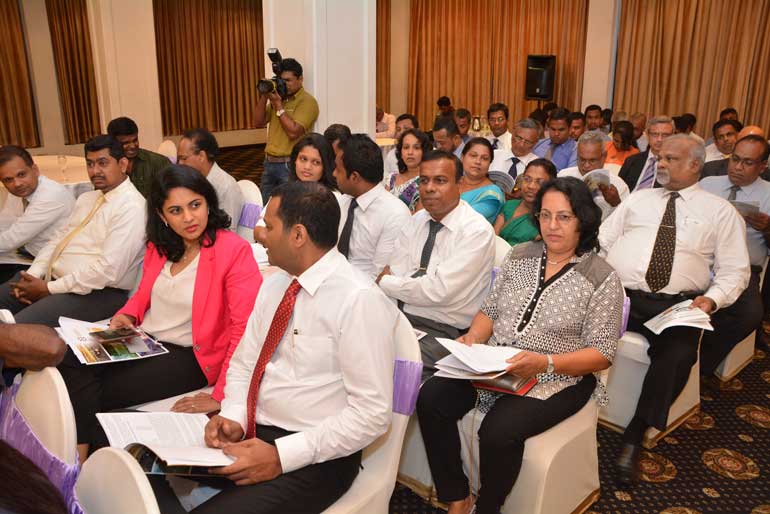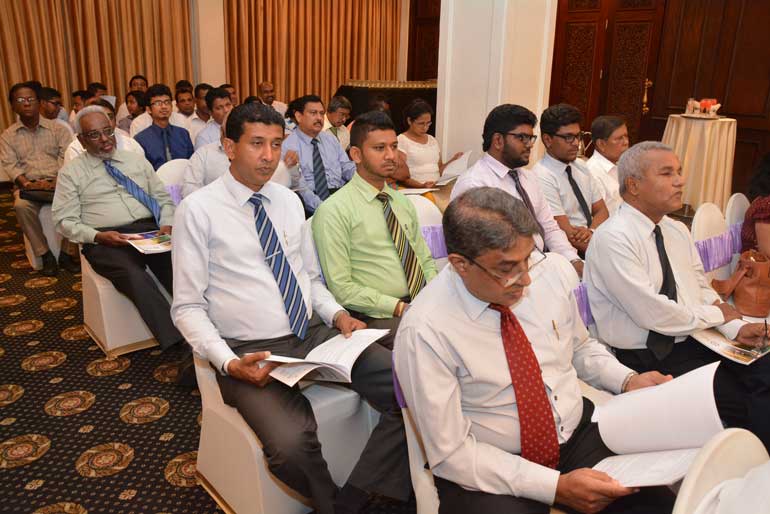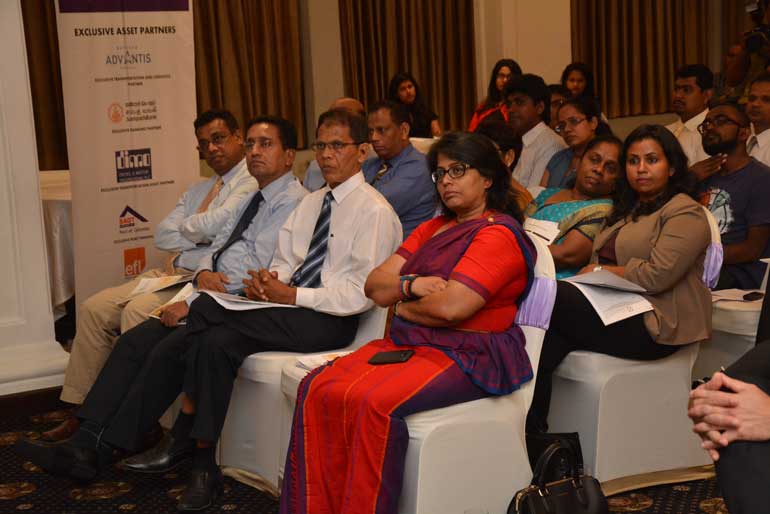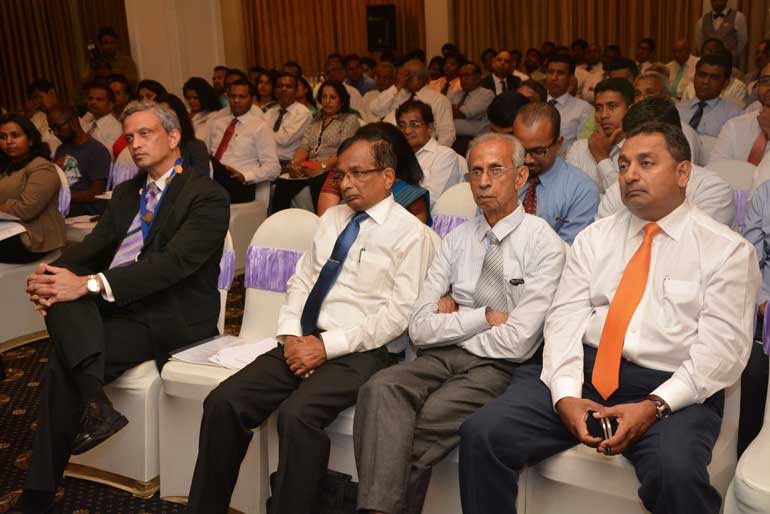Thursday Feb 19, 2026
Thursday Feb 19, 2026
Monday, 4 April 2016 00:00 - - {{hitsCtrl.values.hits}}
By Himal Kotelawala
Barriers to free trade in the form of protectionist policies and non-competitive import taxes need to be re-examined if Sri Lanka is to become a logistics hub in the region, a top Government official said last week.
Delivering the keynote address at the Annual General Meeting of the Chartered Institute of Logistics and Transport, Deputy Minister of Foreign Affairs Dr. Harsha De Silva said in order to create greater activity in the logistics business, more regional trade needs to be encouraged and reducing barriers to trade must be looked at.
“Fundamentally, if this country needs to go in this direction, then we have to think whether the protectionist policy that we are following is the right one,” he said.
 Compared to other logistic hubs like Hong Kong, Singapore or Dubai, said the Deputy Minister, industry tariffs, customs duty and para tariffs (hidden tariffs such as port and aviation levy that are not quantified as customs duty) in Sri Lanka are very high in a way that is non-competitive (about 48%, all added up), with the country’s total protection rate having almost doubled (from 10.7 to 19.7) between January 2004 and January 2011.
Compared to other logistic hubs like Hong Kong, Singapore or Dubai, said the Deputy Minister, industry tariffs, customs duty and para tariffs (hidden tariffs such as port and aviation levy that are not quantified as customs duty) in Sri Lanka are very high in a way that is non-competitive (about 48%, all added up), with the country’s total protection rate having almost doubled (from 10.7 to 19.7) between January 2004 and January 2011.
“If the total protection rate doubles, then the consequences of that are going to be fairly clear: that this is a disincentive to import,” said Dr. De Silva.
Importing is not necessarily just for consumption, but can also be for purposes of exporting, he explained.
“If you don’t import to export and you put so many para tariffs and customs duties that it becomes prohibitive, then we lose out to competition. Because competition is looking at ways to facilitate greater amount of trade.”
A country like Sri Lanka must especially not be antagonist towards import, said Dr. De Silva.
“In the case where raw material was not available, import, add value and export. The whole attitude, the thinking that import is bad and that we must only export was where things started to go wrong. Imports are required for exports in countries particularly like ours. If you’re talking about logistics and adding value, you can’t just export. Import is the other side of the same coin,” he said.
If the country is to go down this road of creating a logistics hub, he said, policies that encourage that and incentivises businesses are required.
“I’m not saying it’s good or bad or right or wrong. Not to pontificate but for you professionals to think about and to contribute in your deliberations with the government and others in really trying to understand what issues we need to sort out if this business is to actually grow.
“I can’t tell you now that this government is going to do A or B but I would be fairly certain that you will see some of these barriers coming down. I wouldn’t be surprised that in the near future, some of these protectionists walls that we have built be removed; and that is because we believe that Sri Lanka’s growth and development of its people to make people better off, for everybody to live in peace and harmony to have growth and development, Sri Lanka must trade and barriers to trade must be carefully removed in such a way that it is not detrimental to our people,” said Dr. De Silva.
Trading within the region is also crucial to becoming a logistics hub in the Indian and Pacific oceanic regions, he added.
While opposing free trade, which has become a dirty word, has become popular politically, policy makers need to think beyond short term politics of four to five years and put the country in the right path, Dr. De Silva went on to say.
“In that context, we need to trade more regionally. How much do we trade with India/Pakistan/Bangladesh/Africa and others? As a region, have we exploited our potential?”
Sri Lanka is ranked 89 in the 2014 logistics performance index, was 82 in 2013. Singapore is ranked 5, while India is 54.
Pix by 


 Upul Abayasekara
Upul Abayasekara